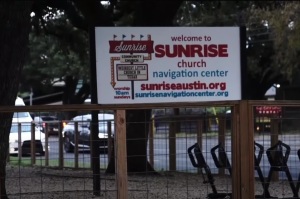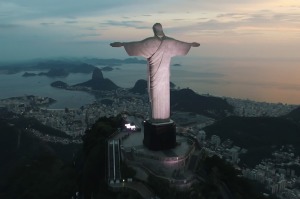Evangelical, Catholic Leaders Call for Approval of New START
Evangelical and Catholic leaders are calling for the ratification of the arms reduction treaty between the United States and Russia in the lame duck session to minimize the threat of a nuclear attack.
Representatives of the National Association of Evangelicals and the U.S. Conference of Catholic Bishops on Tuesday called for renewed commitment to the New START.
The U.S. and Russia hold over 90 percent of the world's nuclear weapons. A ratified treaty would push both the United States to reduce their nuclear stockpiles and, faith leaders say, display clear leadership in the global effort to deescalate nuclear threats.
"It will encourage other nations to adhere to their responsibilities under the Nuclear Non-Proliferation Treaty. The new treaty will make our nation and world safer by reducing nuclear weapons in a verifiable way. For the safety of our nation and world, we urge the Senate to take up the New START Treaty without delay," stated Bishop Howard J. Hubbard, chairman of the USCCB Committee on International Justice and Peace.
Leaders of the two faith bodies believe deescalating global nuclear threats is a matter of moral responsibility for human life.
"In the long and tragic history of human warfare the nuclear weapon occupies a singular position due to the scope and scale of its terrible and indiscriminate power to destroy human life," stated NAE President Leith Anderson.
According to Hubbard, nuclear weapons indiscriminately attack both enemy combatants and innocent bystanders. The weapon also leaves traces of radiation which can harm future generations. Faith leaders say reducing the global nuclear arsenal is will ensure the sanctity of life.
The New Strategic Arms Reduction Treaty is a bilateral arms reduction agreement that originates from the 1991 treaty between the United States and the Union of Soviet Socialist Republics. The treaties have long tried to reduce the number weapons between the two countries.
Under the terms of the New START, the number of nuclear missile launchers would be reduced by half. START documents made available online describe the removal from service of at least 30 missile silos, 34 bombers and 56 submarine launch tubes.
President Barack Obama and Russian President Dmitry Medvedev already signed onto the treaty in Prague in April. At the signing Obama said, "While the New START treaty is an important first step forward, it is just one step on a longer journey. As I said last year in Prague, this treaty will set the stage for further cuts. And going forward, we hope to pursue discussions with Russia on reducing both our strategic and tactical weapons, including non-deployed weapons."
The next step, before further reductions, is to ratify the New START in the Senate. However, some conservative lobbyist groups, such as Heritage Action for America oppose the New Start because they believe that, under the agreement, the United States would have to relinquish more arms than Russia.
However, Anderson of the NAE countered fears, saying the treaty, once ratified, will allow America new inspection rights.
"Ratification of the New START treaty will give the U.S. new rights to inspect Russian nuclear weapons facilities, reducing our military's need for costly 'worst case' contingency planning – a concern which grows with each passing month that the treaty is not ratified," he noted.
Despite efforts to halt passage of the treaty, Obama is calling for the approval of the New START during the lame duck session if it's ever going to be ratified.




























